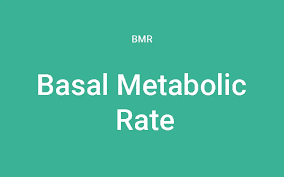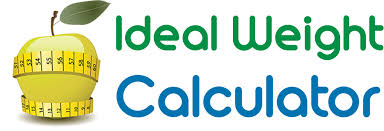Embarking on a healthier lifestyle starts with understanding your daily calorie intake. How Many Calories Per Meal is a common question for those striving to achieve their wellness goals. Using a Meal Calories Calculator can simplify this process and provide accurate information on your calorie consumption per meal. This invaluable tool empowers you to make informed decisions about your diet, maintain balanced nutrition, and ultimately, reach your health objectives.
Meal Calorie Calculator
You will get below Calories in your Intake Food:
| Types of Meal | Calories |
|---|
[ez-toc]
What Are Calories?
You've heard it time and time again - "watch your calories," "count your calories," or "cut down on calories." But what exactly are calories? . By understanding calories, you'll be better equipped to make informed decisions about your diet and overall health.
The Calorie: A Measure of Energy
Calories are a unit of measurement used to quantify the energy that food provides our bodies. The term "calorie" originates from the Latin word "calor," which means heat. In the world of nutrition, calories represent the amount of energy released when the body breaks down food through the process of digestion and metabolism.
Macronutrients: The Big Players in Calorie Content
Our food mainly consists of three macronutrients: carbohydrates, proteins, and fats. Each of these macronutrients provides a specific amount of calories per gram:
- Carbohydrates: 4 calories per gram
- Proteins: 4 calories per gram
- Fats: 9 calories per gram
Understanding the caloric content of these macronutrients can help you make healthier food choices and manage your daily calorie intake.
Balancing Calories: Intake vs. Expenditure
The key to maintaining a healthy weight is finding the right balance between the calories you consume and the calories you burn. This balance is known as energy homeostasis. When you consume more calories than your body needs, the excess energy is stored as fat. Conversely, if you consume fewer calories than your body requires, it will tap into its fat stores to make up for the deficit.
Determining Your Caloric Needs
Everyone's caloric needs are unique, depending on factors such as age, sex, weight, height, and activity level. The Basal Metabolic Rate (BMR) is the number of calories your body needs to maintain its basic functions while at rest. To calculate your daily caloric needs, you can use an online calculator or consult a nutritionist.
Quality vs. Quantity: Choosing Nutrient-Dense Foods
While counting calories can be a useful tool for weight management, it's essential to remember that not all calories are created equal. Opt for nutrient-dense foods, which provide vitamins, minerals, and other essential nutrients, over empty-calorie options like sugary snacks or processed foods.
Calories are the fundamental building blocks of energy for our bodies. By understanding their role in our diets and making informed choices about the foods we consume, we can better manage our weight, overall health, and well-being. Don't merely focus on the number of calories; instead, prioritize the quality of the foods you eat to fuel your body with the essential nutrients it needs.
How many calories should you have for breakfast , Lunch & Dinner ?
We've all heard the saying "breakfast is the most important meal of the day." But what about lunch and dinner? When it comes to calorie distribution throughout the day, striking the right balance is crucial for maintaining optimal energy levels and a healthy weight. In this article, we'll provide guidelines on how many calories you should consume for breakfast, lunch, and dinner to support a balanced and nutritious diet.
Understanding Daily Caloric Needs
Before diving into meal-specific calorie recommendations, it's essential to understand your daily caloric needs. Your daily calorie requirements depend on factors such as age, sex, weight, height, and activity level. To calculate your daily caloric needs, use an online calculator or consult a nutritionist.
Calorie Distribution: A Balanced Approach
A general rule of thumb is to distribute your daily caloric intake across three main meals: breakfast, lunch, and dinner. Ideally, you should aim for the following calorie distribution:
- Breakfast: 20-25% of your daily calories
- Lunch: 30-35% of your daily calories
- Dinner: 30-35% of your daily calories
Remember, these percentages are guidelines and may need to be adjusted based on your individual needs and lifestyle.
Breakfast: Start Your Day Right
Breakfast is crucial for kickstarting your metabolism and providing energy to begin your day. Consuming a nutrient-dense breakfast with a balanced mix of carbohydrates, proteins, and healthy fats can help you stay focused and energized throughout the morning. Aim for 20-25% of your daily caloric intake at breakfast, which equates to approximately 400-500 calories for a 2,000-calorie diet.
Lunch: Power Through the Day
Lunch is an opportunity to refuel your body and maintain your energy levels for the remainder of the day. Opt for a combination of lean proteins, whole grains, vegetables, and healthy fats to create a balanced and satisfying meal. Aim for 30-35% of your daily caloric intake at lunch, which equates to approximately 600-700 calories for a 2,000-calorie diet.
Dinner: Nourish and Restore
Dinner is the last significant meal of the day and an opportunity to provide your body with the nutrients it needs to repair and restore itself overnight. Focus on incorporating lean proteins, plenty of vegetables, and healthy fats, while limiting heavy or processed foods that may lead to indigestion or poor sleep. Aim for 30-35% of your daily caloric intake at dinner, which equates to approximately 600-700 calories for a 2,000-calorie diet.
How many calories per meal should i eat to lose weight ?
When it comes to weight loss, calorie counting is a tried and tested strategy. However, determining the right number of calories per meal can be challenging. In this SEO-friendly article, we'll explore the ideal calorie distribution across your daily meals to help you lose weight effectively and sustainably, without compromising your overall health and well-being.
Calculate Your Daily Caloric Needs
To lose weight, it's crucial to understand your daily caloric needs. Your daily calorie requirements depend on factors such as age, sex, weight, height, and activity level. To calculate your daily caloric needs, use an online calculator or consult a nutritionist.
Create a Calorie Deficit for Weight Loss
To lose weight, you need to create a calorie deficit by consuming fewer calories than your body requires. Generally, a deficit of 500-1,000 calories per day can result in a weight loss of 1-2 pounds per week. This range is considered safe and sustainable for most individuals.
Meal Planning for Weight Loss
Once you've determined your daily calorie goal, it's time to plan your meals. A well-balanced meal plan should include a mix of proteins, carbohydrates, and healthy fats, distributed across breakfast, lunch, and dinner, as well as snacks if needed. As a guideline, you can consider the following calorie distribution:
- Breakfast: 20-25% of your daily calories
- Lunch: 30-35% of your daily calories
- Dinner: 30-35% of your daily calories
- Snacks (if needed): 10-15% of your daily calories
Customize Your Calorie Distribution
Remember that the above percentages serve as a starting point and can be adjusted based on your individual needs and preferences. For instance, if you prefer a lighter breakfast, you can allocate more calories to lunch or dinner, or include a mid-morning snack. The key is to find a calorie distribution that works for you and supports your weight loss goals while maintaining a balanced and nutritious diet.
Prioritize Nutrient-Dense Foods
When aiming for weight loss, it's essential to focus not only on the number of calories you consume but also on the quality of the foods you eat. Opt for nutrient-dense foods that are high in vitamins, minerals, and other essential nutrients, as opposed to empty-calorie options like sugary snacks or processed foods. This approach will help you feel satisfied and energized, making it easier to stick to your weight loss plan.
Determining the optimal calorie distribution for your meals is a crucial aspect of any weight loss plan. By understanding your daily caloric needs, creating a calorie deficit, and strategically planning your meals, you'll be well on your way to achieving your weight loss goals. Remember to prioritize nutrient-dense foods and customize your calorie distribution to suit your individual needs and preferences. With consistency and dedication, you'll soon see the results you've been working towards.
How many calories in a Mango,Banana,Rice etc.
When it comes to managing your weight and maintaining a healthy lifestyle, understanding the caloric content of various foods is essential. In this SEO-friendly article, we'll explore the calories found in some popular food items, including mango, banana, rice, and more, to help you make informed decisions about your diet and meal planning.
Mango: The Tropical Treat
Mangoes are not only delicious but also packed with vitamins and minerals. A medium-sized mango (about 207 grams) contains approximately 135 calories. This tropical fruit is a great source of vitamin C, vitamin A, and dietary fiber, making it a nutritious and refreshing snack option.
Banana: The Versatile Fruit
Bananas are a convenient and energy-boosting snack that can be easily incorporated into various meals. A medium-sized banana (about 118 grams) contains approximately 105 calories. Rich in potassium, vitamin C, and dietary fiber, bananas are a healthy and satisfying addition to your diet.
Rice: The Staple Food
Rice is a staple food for many people around the world and comes in various types, including white, brown, and wild rice. The caloric content of rice varies depending on the type and cooking method:
- White rice (cooked, 1 cup or 158 grams): approximately 205 calories
- Brown rice (cooked, 1 cup or 195 grams): approximately 216 calories
- Wild rice (cooked, 1 cup or 164 grams): approximately 166 calories
Brown and wild rice are considered more nutritious options due to their higher fiber content and lower glycemic index compared to white rice.
Other Common Foods and Their Caloric Content
Here's a quick reference guide for the calorie content of some other popular food items:
- Apple (medium-sized, 182 grams): approximately 95 calories
- Orange (medium-sized, 131 grams): approximately 62 calories
- Grapes (1 cup or 151 grams): approximately 104 calories
- Spinach (raw, 1 cup or 30 grams): approximately 7 calories
- Chicken breast (cooked, skinless, 3 ounces or 85 grams): approximately 140 calories
- Salmon (cooked, 3 ounces or 85 grams): approximately 177 calories
- Almonds (1 ounce or 28 grams): approximately 164 calories
Balancing Calories for a Healthy Lifestyle
Understanding the caloric content of various foods can help you make healthier choices and manage your daily calorie intake. Keep in mind that it's essential to balance calories with the quality of the foods you consume. Opt for nutrient-dense options that provide vitamins, minerals, and other essential nutrients your body needs for optimal health.
Being aware of the calories found in mango, banana, rice, and other popular foods can be incredibly helpful for planning balanced and nutritious meals. As you make choices about your diet, remember to prioritize nutrient-dense options and consider both the caloric content and the nutritional value of the foods you consume. With this knowledge, you'll be better equipped to maintain a healthy lifestyle and achieve your wellness goals.

Meal Calories Calculator
In today's fast-paced world, keeping track of your daily calorie intake can be a challenge. A meal calories calculator can be a game-changer, helping you make informed decisions about your diet and reach your health and wellness goals. In this SEO-friendly article, we'll introduce the concept of a meal calories calculator, discuss its benefits, and provide tips on how to effectively use this valuable tool for better nutrition and weight management.
What is a Meal Calories Calculator?
A meal calories calculator is a digital tool designed to help you determine the caloric content of your meals. By inputting information about the foods you consume, portion sizes, and preparation methods, the calculator estimates the total number of calories for each meal. This user-friendly tool can be accessed through various websites, mobile apps, or integrated into fitness trackers.
Benefits of Using a Meal Calories Calculator
A meal calories calculator offers several advantages:
- Simplifies calorie counting: By calculating the calories in your meals, the tool makes it easy to keep track of your daily calorie intake.
- Promotes mindful eating: Regularly using a meal calories calculator encourages you to be more aware of the foods you consume and their nutritional value.
- Supports weight management: Knowing the caloric content of your meals can help you create a calorie deficit for weight loss or maintain a balanced diet for weight maintenance.
- Customization: Many meal calories calculators allow you to save favorite recipes, create meal plans, and set personal goals for a tailored experience.
Tips for Using a Meal Calories Calculator Effectively
To make the most of your meal calories calculator, consider the following tips:
- Be accurate: Measure portion sizes and input accurate information about the foods you consume for precise calorie calculations.
- Don't forget beverages: Many people overlook the calories in beverages, which can significantly impact your daily calorie intake. Be sure to include drinks in your calculations.
- Track consistently: Make a habit of tracking your meals regularly to get an accurate picture of your calorie intake and monitor your progress over time.
- Combine with other tracking tools: Utilize additional tracking features, such as exercise logs or water intake trackers, to gain a comprehensive understanding of your overall health and wellness.
Pairing a Meal Calories Calculator with a Balanced Diet
While a meal calories calculator can be an excellent tool for monitoring your calorie intake, it's essential to prioritize a balanced and nutritious diet. Focus on consuming whole, minimally processed foods, including fruits, vegetables, lean proteins, whole grains, and healthy fats, to provide your body with the essential nutrients it needs for optimal health.
Frequently Asked Questions (FAQ)
1. What are Meal Calories?
Meal Calories refer to the number of calories contained in a single meal or serving of food. It's a crucial aspect of managing your daily calorie intake for a balanced diet.
2. Why is it important to know the calorie content of meals?
Understanding the calorie content of your meals is essential for maintaining a healthy weight, meeting nutritional goals, and making informed dietary choices.
3. How are Meal Calories calculated?
Meal Calories are calculated by adding up the calorie values of each ingredient or food item in the meal. You can use a Meal Calories Calculator to simplify this process.
4. Is there a recommended number of calories per meal?
The ideal number of calories per meal can vary based on factors like age, gender, activity level, and overall daily calorie goals. As a general guideline, many people aim for around 300-600 calories per meal, but individual needs may differ.
5. How do I use a Meal Calories Calculator?
Using a Meal Calories Calculator is straightforward. Input the ingredients or foods you've used in your meal, along with their respective portion sizes, and the calculator will provide the total calorie count for that meal.
6. What should I consider when determining how many calories per meal is good for me?
When determining your ideal calorie intake per meal, consider your daily calorie goals, activity level, and how you want to distribute your calories throughout the day. Some individuals prefer larger meals while others opt for smaller, more frequent ones.
7. Is it essential to count calories for every meal?
Counting calories for every meal isn't mandatory for everyone. It can be a useful tool for those with specific dietary goals, such as weight management or certain health conditions. However, listening to your body's hunger and fullness cues is also important.
8. Can meal calories vary based on dietary preferences or restrictions?
Yes, meal calories can vary significantly based on dietary preferences and restrictions. For example, a vegetarian meal may have different calorie content than a meal with meat. It's essential to tailor your meals to align with your dietary choices and goals.
9. Are there recommended calorie ranges for specific meals (e.g., breakfast, lunch, dinner)?
There are no strict calorie ranges for specific meals, as individual needs and preferences vary. However, some people prefer larger breakfasts to kickstart their day, while others allocate more calories for dinner. It's about finding what works best for you.
10. Should I consult a dietitian or nutritionist for personalized meal calorie guidance?
If you have specific dietary goals, medical conditions, or require personalized guidance, consulting a registered dietitian or nutritionist is advisable. They can help you create meal plans tailored to your unique needs and preferences.
Conclusion:
A meal calories calculator is a valuable tool for managing your daily calorie intake, promoting mindful eating, and supporting your health and wellness goals. By using this tool effectively and prioritizing a balanced diet, you'll be well on your way to achieving better nutrition and weight management. Embrace the power of technology to take control of your diet and reach your wellness objectives.





